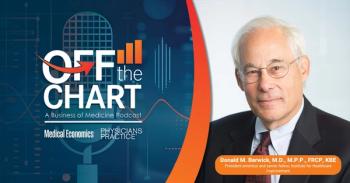
Patient Readmission Rates: One Metric to Closely Monitor
With more than 2,200 hospitals recently notified of reimbursement reductions by CMS, now is the time for physicians to watch those readmission rates.
On August 2, CMS released a rule, which identified 2,225 hospitals to receive $227 million in Medicare reimbursement reductions beginning October 1, 2013. This is part of the 2,225 pages of final rules, which address a variety of related programs*. These hospitals in particular were identified because of their outlier statistics relating to 30-day readmission rates for heart attack, heart failure, and pneumonia. The maximum penalty was also increased from 1 percent to 2 percent. It is also prudent to closely monitor readmission rates for total joints and chronic obstructive pulmonary disease now because they are slated to be included in FY 2015.
There were approximately 3,359 hospitals eligible for penalties, which equates to nearly two-thirds being fined. This was similar to the Year 1 statistics, which began in October 2012. Under the readmissions program, hospitals landing in the top third of relative performance are exempt from the fine. The primary purpose behind the initiative, like ICD-10 or accountable care organizations, is to improve the quality of care.
The takeaway for physicians and hospitals underscores the importance of specific clinical documentation upon admission to the facility by the clinician and management of patients with comorbid conditions - such as diabetes - which can impact the recovery process.
*42 C.F.R. 412, 413, 414, 419, 424, 482, 485, and 489
Newsletter
Optimize your practice with the Physicians Practice newsletter, offering management pearls, leadership tips, and business strategies tailored for practice administrators and physicians of any specialty.






